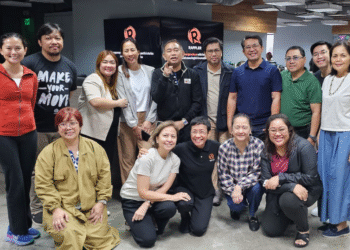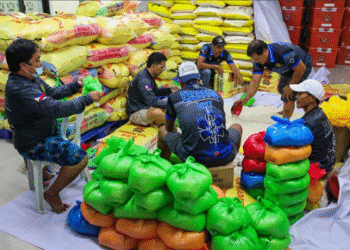CATBALOGAN CITY – Most successful business stories begin with a big idea or a large amount of capital. But for Marietta B. Bernales, her journey started with a borrowed ₱1,000—and a dream: to bring Gandara, Samar’s tabliya (cacao blocks) and kesong puti (white cheese) beyond the borders of her hometown.
From personally delivering products to government offices by hand, she gradually built a local food brand now recognized in malls, trade fairs, and pasalubong centers across the country. Her perseverance and passion set her on a path of transformation—not just for herself, but for her community.
That same grit and determination recently earned her the 2025 Regional Kabuhayan Award from the Department of Labor and Employment (DOLE). Bernales received the Best DOLE-Assisted Livelihood Project Award in the Individual Category, along with a plaque and a ₱25,000 cash prize.
Her enterprise, Mayette Native Food Products, stood out for its impact, sustainability, and ability to generate livelihoods—not just for her family, but for her workers and local students.
Starting Small, Building Trust
Bernales chose to specialize in unique, locally rooted products—unlike most small stores that focus on common snack items. Her focus on cacao and cheese products demanded both patience and skill.
“When I first started making kesong puti, I didn’t even know how to do it properly,” she admitted. “Raw materials were also scarce back then.”
Without access to store shelves or supermarket tie-ups, she initially sold her products door-to-door and even approached government offices to offer her goods.
“It was hard to find a market,” she recalled. “I had to go to offices and introduce myself. People didn’t trust me at first because they didn’t know who I was.”
Using her small sari-sari store as a test bed, she carefully managed her limited resources. With just ₱300 left from her initial capital, she bought ingredients in small quantities, reinvesting every peso earned to slowly grow her business.
From Hand-Carried Goods to Mall Displays
Over the years, Bernales received training, equipment, and support from several government agencies, including the Department of Trade and Industry (DTI), Department of Science and Technology (DOST), Department of Agriculture (DA), and DOLE. These partnerships were instrumental in expanding her operations.
“DTI was the first to help us,” she shared. “They trained us on how to improve our products—better packaging, labeling, and marketing. I also bought equipment in installments with help from DOST.”
Her business journey evolved from humble hand-carried sales to widespread product distribution in major trade fairs in Manila, local malls, and regional gift shops.
More Than a Business, a Role Model
Today, Mayette Native Food Products employs 12 full-time staff and hires up to 35 student assistants during peak production seasons. For Bernales, the greatest reward isn’t just the financial gain—it’s the lives she’s touched along the way.
“What’s inspiring is that I’ve been able to help others. From having nothing, I was able to rise,” she said. “My peers have seen my journey, and now some of them are also selling. They’re following my example. I’ve become a model to them.”
Winning the award, she admits, was unexpected.
“I didn’t think I would win because there were many others like me. But I believe I truly deserved it—because people see my products in so many places now,” she said, expressing gratitude to the Public Employment Service Office (PESO) in Gandara for nominating her.
Bernales’ story captures the spirit of the Kabuhayan Awards: that success isn’t about where you start, but how far you’re willing to go—and how many people you lift up along the way.
(By Aaron A. Cotejar, PIA Samar)









